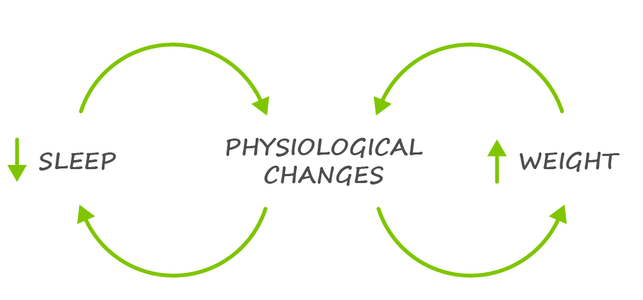|
(Part of our January series on S3 Weight Management - Systematic, Stratified and Sustainable) There are multiple lines of evidence to support that getting a good night's sleep is important in order to be able to lose weight. From an evolutionary perspective sleep and energy management are intricately linked. Poor sleep dramatically alters the way the body responds to food. When you do not get adequate sleep, your hunger hormones send signals to your brain to eat more.
As a result studies have shown that people who have inadequate sleep consume more calories. Compounding this, sleep deprived individuals have been shown to preferentially choose calorie dense foods rich in both fats and carbohydrates. Inadequate sleep also increases the release of the stress hormone cortisol, which in turn signals the brain to increase appetite via the release of another hormone orexin. High levels of cortisol may explain why sleep deprivation appears to lead to loss of muscle mass and increased abdominal (visceral) fat. Independent of its effect on appetite, cortisol also counters the actions of insulin, leading to insulin resistance the result of which can be high levels of insulin. Insulin is a storage hormone promoting the storage of prompt storage of glucose as glycogen and fats within adipose tissue. With high enough levels of insulin, fat will be quickly stored and lipolysis (the breakdown of fat for energy) will be suppressed, resulting in one-way storage in other words "a moment on the lips, forever on the hips" This cortisol induced insulin resistance can be demonstrated in as little as one week of sleep deprivation. Other studies have shown that a lack of sleep can
As a result of these effects it is not surprising that inadequate sleep is associated with weight gain. Large observational studies, like the Nurses Health Study, following 68,000 nurses, demonstrated that short sleep duration increased the likelihood of obesity by 15%. Of course, observational research can show associations it cannot prove causation, however shorter term sleep deprivation studies also show weight gain. The recent PREDIMED Plus study showed that lack of sleep affects weight loss during a trial of the Mediterranean Diet , as overweight people who did not sleep well lost less weight that those without sleep issues. Finally, sleep apnea one of the most devastating sleep disorders is both associated with and worsened by weight gain. This sets up a vicious cycle where poor sleep can lead to weight gain, and potentially sleep apnea and sleep apnea in turn leads to further weight gain. So we can see from this
The resulting vicious cycle can set up a progressive deterioration of sleep with a corresponding weight gain. The key to reversing this cycle is to prioritize sleep:
For more on this, see some of the previous blog posts on sleep
For other posts in our foundational behaviours for weight managemetn series:
On January 29th- we will launch a new group program - fully covered by MSP (for those with a BMI >30 or a BMI between 27 and 30 and a weight related diagnosis). During the month of January - we will be posting about the foundational behaviours for sustainable weight management - stay tuned. If you would like to learn more about the S3 program and whether you are eligible please check out our Sustainable Weight Management program page. |
AuthorDr. Brendan Byrne Categories
All
|

 RSS Feed
RSS Feed
